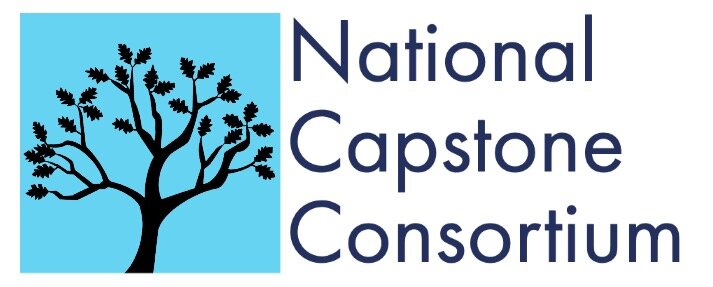Note: This post was written before the 2020 Covid pandemic and was to be published in March
In our Senior Capstone program, we like to say that projects are driven by the students. But our students are 17-18 years old. As ready as they think they are for college, they still are heavily dependent on the structures of high school. Consequently I think it’s fair to say that our Capstone program is heavily scaffolded. Students do weekly plans (basically a “to do” list and “done” list every week), they do annotated bibliography entries, and they write regular blog posts. They find these annoying, to be sure, but we find that it keeps them somewhat on task.
The big deadlines in our program, however, are what my colleague Jeff Mikalaitis and I refer to as “.25 project deliverables (aka: ¼ project deliverables)” and “.50 project deliverables (aka: mid-project deliverable),” in addition to the final project deadline. As those deadlines approach, the tension in the Capstone classroom is palpable; students are down to the wire and it’s definitely not a good time to ask them how they are feeling about the course!
It’s that same feeling that I remember from college, ramping up for finals. It’s the best feeling ever when you finish but OMG you feel awful as you are prepping for the tests.
Rarely, though, do we talk about the teacher end of things in this context. Now that we are in Year Six of our Senior Capstone program, we’ve learned this: when those mega deadlines hit, we are on the receiving end of a tsunami. We are buried in reading, assessing, editing, commenting, deciphering—all that stuff that teachers do all the time--but somehow, during .25 and .50 deliverable time, we are literally underwater. For days. Sometimes days and days. Weeks even.
And don’t even ask about the period after students turn in their final projects.
We’ve just emerged from one of these (the mid-project deliverable that wasn’t really scheduled at mid-project) and, as per usual, I’m always thinking about how it could be more stress-free and manageable.
The challenge, of course, is this: how much feedback to give? Do you weigh in on every line of text? Do you correct sloppy spelling or grammar or…the ones that drive me crazy….poor footnoting and misplaced punctuation? How to balance positive input that’s genuine—“that section on reparations for indigenous people was brilliant!”—with critical feedback designed to encourage students to make it better—“I recognize what you are going for here but this lacks evidence throughout and you can’t make a case without data points and sourcing.”
Many of our students are publishing their work in book form at the conclusion of the course; that’s published work and to what degree is our role as the teacher to also play editor? Or do we simply allow them to publish when they say they are “done”? To what degree is Capstone about process vs. final product?
And of course there’s grading. We have no choice: our school is grade driven and we have to give grades on this project. This year we have taken to indicating on the mid-project deliverable what we would expect the grade on the final project to be if the work we see in the mid-project is of the same quality as we’ll see in the final. Our goal here is to be honest and to get students to “up their game” if they truly want to produce something exemplary.
The idealist in me wishes that we didn’t have to grade these at all but the pragmatist knows that our students would prioritize grades—and therefore work--in other courses if we somehow were able to refrain from grading. Alas.
One of the great aspects of Google docs is that I can weigh in with feedback and then see how students respond. I receive e-mails as students “resolve” my feedback. But I know I must have gone overboard when I received an e-mail from Google telling me that Johnny resolved “389” of my suggestions. Did I really make 389 suggestions? Did I shut down his ability--or willingness--to revise on his own?
How do we find the balance between offering feedback vs standing back and letting students find their own way? I’d love an answer to this (a great Capstone project that would be!). Maybe we’ll talk about this at this year’s Summer Summit at Menlo School! In the meantime, until I find a solution, I suppose Jeff and I will lurch back and forth between periods of waiting and supporting until the next tsunami hits shore.
For us, that next tsunami hits in late March. Which means….I’ll come up for air in…. May? Maybe?
Judi Freeman
Boston Latin School Senior Capstone program
Boston Latin School
The views of each blog post are the experiences of the individual instructor and school and do not necessarily represent the views of the Consortium
